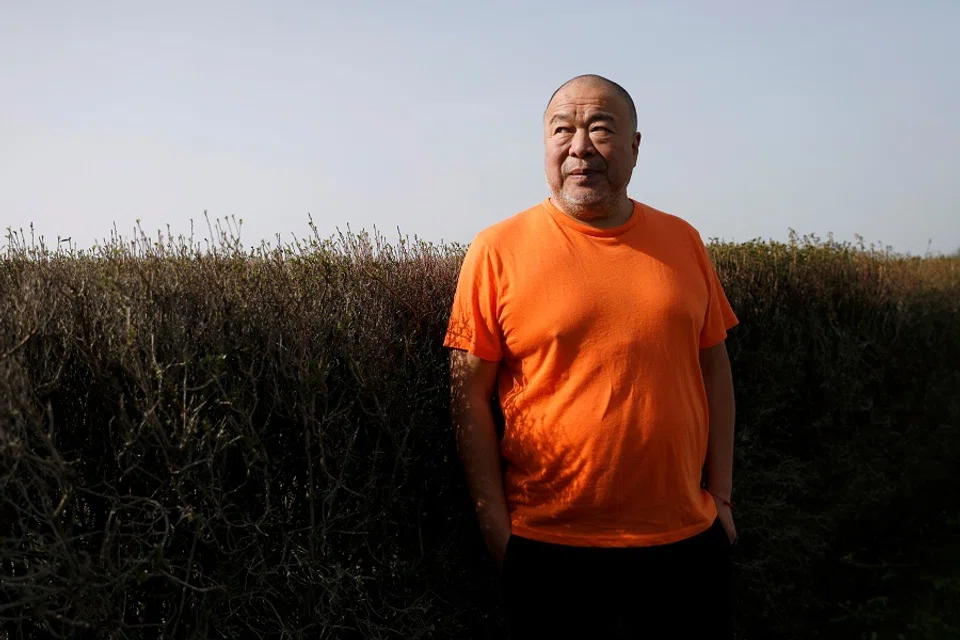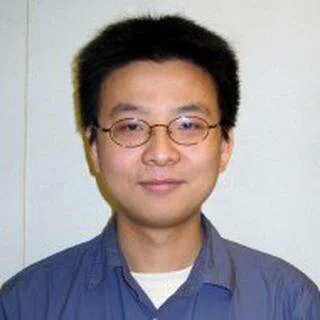Do artworks need to be patriotic? Hong Kong politicians fight over Ai Weiwei's 'middle finger photograph'
In itself, a subversive artwork by Chinese dissident Ai Weiwei to be shown at Hong Kong's new M+ museum may not have drawn such attention. But under the shadow of the national security law in Hong Kong and the looming chief executive election, everything is magnified a hundredfold.

In recent years, there have been efforts to develop Hong Kong into a hub of cultural exchange between China and the world. A related project is the new M+ visual culture museum at the West Kowloon Cultural District. But even before the museum opens its doors to the world at the end of the year, it has become the talk of the town and might even affect the chief executive election next year.
This all started after Eunice Yung Hoi-yan, a member of the pro-Beijing New People's Party known for her moderate stance, suddenly lashed out at Carrie Lam during a Legislative Council (LegCo) meeting on 17 March. She asked if an artwork by Chinese dissident Ai Weiwei - a photograph of someone showing the middle finger at Tiananmen Square - would be exhibited in M+, and if this would violate the Hong Kong national security law by inciting hatred towards the central government.
... they also deemed other artworks exhibited by M+ vulgar and requested the authorities to make timely revisions to the management structure of the West Kowloon Cultural District...
After this incident, pro-establishment newspapers such as Ta Kung Pao closely followed up with news reports for days. Apart from attacking the "middle finger photograph", they also deemed other artworks exhibited by M+ vulgar and requested the authorities to make timely revisions to the management structure of the West Kowloon Cultural District since the performance of the first three foreign CEOs of the West Kowloon Cultural District Authority (WKCDA) left much to be desired.

Raking up the past
However, it was an article by columnist Chris Wat Wing-yin that garnered the most public interest. Her inside story on M+'s purchase of controversial artworks even got several senior officials in the political circle embroiled.
According to Wat's article, then board members of the WKCDA Leung Chun-ying (former chief executive of Hong Kong) and Tsang Tak-sing (former secretary of home affairs) did not agree that M+ should collect western artworks from Swiss collector Uli Sigg but their views were shot down by then WKCDA vice chairman Henry Tang (former chief secretary for administration) and then WKCDA board member Selina Chow (former chairperson of the Liberal Party), who thought that Leung and Tsang did not know anything about art. In her column, Wat implied that there was some collusion between government officials and businessmen in the process of acquiring artworks.
Wat has always been a supporter of Leung, who said earlier that he would not rule out running again in the next chief executive electoral race. While Wat's article on the M+ incident mainly talked about past events, the timing of the furore and the people mentioned in the piece lead those in political circles to think that the battle for the next chief executive next year has quietly begun.

Back when the authorities were discussing if the proposed artworks should be accepted by the museum, then director of the Development Bureau Carrie Lam, who was also a board member of the WKCDA, did not object to the proposal. She even recently appointed her close political aide, Betty Fung Ching Suk-yee, as acting CEO of the WKCDA. Wat stirring up old news, and Leung's supporters adding fuel to the fire, might seem like actions lambasting Tang who made the final decision at the time, but many people believe that the Leung camp is actually targeting the Lam administration.
In fact, a recent meeting of the National People's Congress passed a resolution to reform Hong Kong's electoral system. According to the timeline of the Hong Kong government, the new Election Committee will be formed in September this year, the LegCo elections will be held in December, and the chief executive will be elected in March next year. In other words, the race for chief executive will begin very soon after the Election Committee is formed, and there is talk that Carrie Lam has already established her election office.
Amid the bashing by the Leung camp, Lam seems displeased. She recently attended the Hong Kong Economic Summit, where - without giving names - she criticised some people who have been in important positions for over 20 years, who have turned a blind eye to improving "one country, two systems". Those in the political arena believe she was making a veiled criticism of Leung for not doing a good job.
Besides, it is in the DNA of artists to challenge authority. And Ai did not specifically flip the finger at China, but he also did it at the White House and the Bundeshaus Bern.

To be fair, there is no universal standard for assessing art. The campaign by the pro-establishment camp and the Leung supporters against showing the Ai Weiwei photograph at M+, is clearly a case of making a mountain out of a molehill. After all, the work was created and collected before the national security law kicked in, and there is no legal basis for the allegations against it.
Besides, it is in the DNA of artists to challenge authority. And Ai did not specifically flip the finger at China, but he also did it at the White House and the Bundeshaus Bern.
Hypersensitivity to perceived transgressions
But it is worth thinking about this controversy. Since Hong Kong and Macau Affairs Office director Xia Baolong said Hong Kong has to be run by "patriots", the pro-establishment camp has been slinging mud within itself, and some extremist voices are focusing on online political tussles, bringing Hong Kong into a whirlpool of pan-politicisation.
This includes director of food and environmental hygiene and permanent secretary for food and health Vivian Lau being questioned for her patriotism as her husband is a "yellow ribbon" or pro-democracy supporter. Permanent secretary for financial services & the treasury (treasury) Alice Lau was also criticised for being a pro-democracy supporter as she wore a mask with something that looked like a pro-democracy symbol on it.
Once someone mentions patriotism, everyone else is forced to show their loyalty.

One scene in the Hong Kong comedy movie 92 Legendary La Rose Noire stands out: when Wong Wan-sze's character hears Fung Bo Bo's character ring a bell, Wong has to perform a short series of martial arts moves. The sequence is funny, but also reflects the helplessness of "formalism".
Right now in Hong Kong, patriotism has become like the bell in Fung Bo Bo's hand. Once someone mentions patriotism, everyone else is forced to show their loyalty. The result is that people miss the original meaning of patriotism, which is to love and serve the people, and not just keep talking about patriotism all the time.
Last year, Beijing started to take major steps to resolve the chaos in Hong Kong, so that it can focus on bread-and-butter and economic issues. But looking at the controversy over the M+ museum collection, the authorities need to stand against the right while also being wary of the left.





![[Photos] Fact versus fiction: The portrayal of WWII anti-Japanese martyrs in Taiwan](https://cassette.sphdigital.com.sg/image/thinkchina/3494f8bd481870f7c65b881fd21a3fd733f573f23232376e39c532a2c7593cbc)